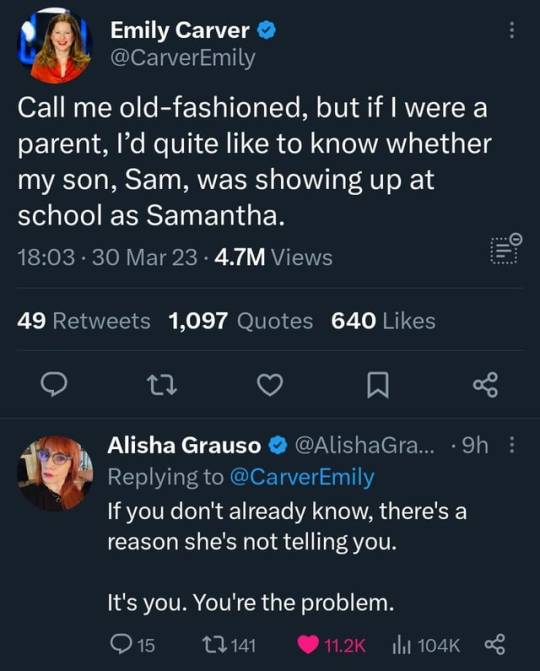Photo










Authorization acknowledged:
U.S.S. Enterprise now under command of Captain Jean-Luc Picard.
STAR TREK: PICARD
S03E09 | Võx
753 notes
·
View notes
Text

I expected nothing less from a single mom who works two jobs, who loves her kids and never stops, with gentle hands and a heart of a fighter

10K notes
·
View notes
Text
to all my researchers, students and people in general who love learning: if you don't know this already, i'm about to give you a game changer
connectedpapers
the basic rundown is: you use the search bar to enter a topic, scientific paper name or DOI. the website then offers you a list of papers on the topic, and you choose the one you're looking for/most relevant one. from here, it makes a tree diagram of related papers that are clustered based on topic relatability and colour-coded by time they were produced!
for example: here i search "human B12"

i go ahead and choose the first paper, meaning my graph will be based around it and start from the topics of "b12 levels" and "fraility syndrome"

here is the graph output! you can scroll through all the papers included on the left, and clicking on each one shows you it's position on the chart + will pull up details on the paper on the right hand column (title, authors, citations, abstract/summary and links where the paper can be found)
you get a few free graphs a month before you have to sign up, and i think the free version gives you up to 5 a month. there are paid versions but it really depends how often you need to use this kinda thing.
14K notes
·
View notes
Text
reblog to give somebody a fucking hug because we are all struggling to get through it. solidarity in this tough ass world.
122K notes
·
View notes
Text
Scientists explain emotional ‘blunting’ caused by common antidepressants
According to the NHS, more than 8.3 million patients in England received an antidepressant drug in 2021/22. A widely-used class of antidepressants, particularly for persistent or severe cases, is selective serotonin reuptake inhibitors (SSRIs). These drugs target serotonin, a chemical that carries messages between nerve cells in the brain and has been dubbed the ‘pleasure chemical’.
One of the widely-reported side effects of SSRIs is ‘blunting’, where patients report feeling emotionally dull and no longer finding things as pleasurable as they used to. Between 40-60% of patients taking SSRIs are believed to experience this side effect.
To date, most studies of SSRIs have only examined their short term use, but, for clinical use in depression these drugs are taken chronically, over a longer period of time. A team led by researchers at the University of Cambridge, in collaboration with the University of Copenhagen, sought to address this by recruiting healthy volunteers and administering escitalopram, an SSRI known to be one of the best-tolerated, over several weeks and assessing the impact the drug had on their performance on a suite of cognitive tests.
In total, 66 volunteers took part in the experiment, 32 of whom were given escitalopram while the other 34 were given a placebo. Volunteers took the drug or placebo for at least 21 days and completed a comprehensive set of self-report questionnaires and were given a series of tests to assess cognitive functions including learning, inhibition, executive function, reinforcement behaviour, and decision-making.
The results of the study are published in Neuropsychopharmacology.
The team found no significant group differences when it came to ‘cold’ cognition – such as attention and memory. There were no differences in most tests of ‘hot’ cognition – cognitive functions that involve our emotions.
However, the key novel finding was that there was reduced reinforcement sensitivity on two tasks for the escitalopram group compared to those on placebo. Reinforcement learning is how we learn from feedback from our actions and environment.
In order to assess reinforcement sensitivity, the researchers used a ‘probabilistic reversal test’. In this task, a participant would typically be shown two stimuli, A and B. If they chose A, then four out of five times, they would receive a reward; if they chose B, they would only receive a reward one time out of five. Volunteers would not be told this rule, but would have to learn it themselves, and at some point in the experiment, the probabilities would switch and participants would need to learn the new rule.
The team found that participants taking escitalopram were less likely to use the positive and negative feedback to guide their learning of the task compared with participants on placebo. This suggests that the drug affected their sensitivity to the rewards and their ability to respond accordingly.
The finding may also explain the one difference the team found in the self-reported questionnaires, that volunteers taking escitalopram had more trouble reaching orgasm when having sex, a side effect often reported by patients.
Professor Barbara Sahakian, senior author, from the Department of Psychiatry at the University of Cambridge and a Fellow at Clare Hall, said: “Emotional blunting is a common side effect of SSRI antidepressants. In a way, this may be in part how they work – they take away some of the emotional pain that people who experience depression feel, but, unfortunately, it seems that they also take away some of the enjoyment. From our study, we can now see that this is because they become less sensitive to rewards, which provide important feedback.”
Dr Christelle Langley, joint first author also from the Department of Psychiatry, added: “Our findings provide important evidence for the role of serotonin in reinforcement learning. We are following this work up with a study examining neuroimaging data to understand how escitalopram affects the brain during reward learning.”
129 notes
·
View notes











